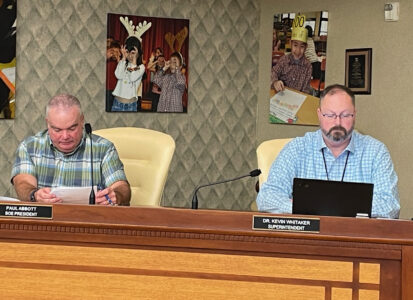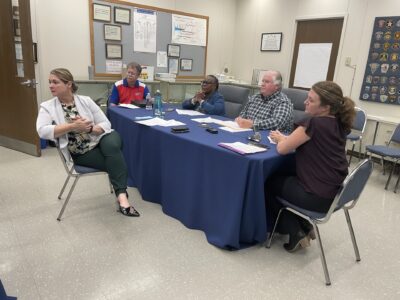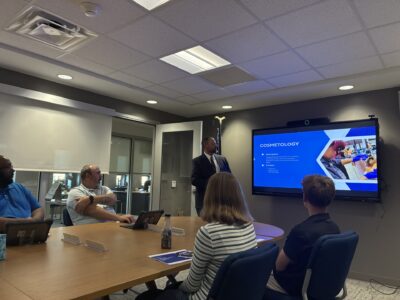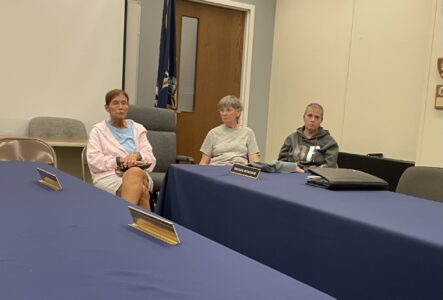Rewritten Rules
SWCS Students Quickly Adjusting To Phone Ban
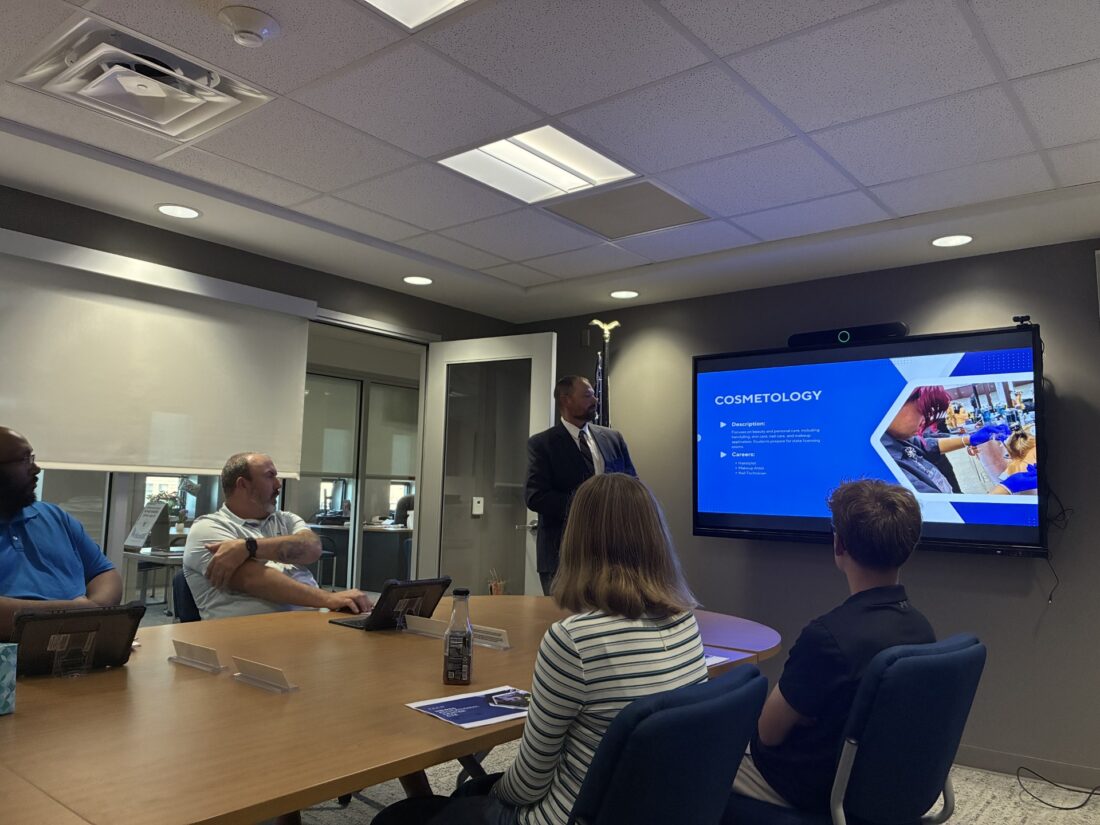
Lucy Brown and Lincoln Bockrath patiently await their turn to speak while Christian Hy gives a CTE presentation. P-J photo by Owen Reed
Both students and Superintendent Molly Moore are repeating the message from other regional school districts – the state’s cell phone ban is no big deal for students.
During the Southwestern Central School board’s recent meeting, both Moore and student board members discussed the school cell phone ban, saying the reaction and response has been better than anticipated .
Student board members Lucy Brown and Lincoln Bockrath were present at the meeting and gave an inside perspective to how students in the district have felt without phones. Both discussed the seemingly improved communication between students during the school day. Lunch time has seen an increase in student communication, said Brown, who said he has noticed more people talking with friends. Brown noted this to be a shift from before the ban, when a large number of students would sit and scroll on their phones instead of interacting with classmates. Bockrath also chimed in, detailing the noticeable adjustment in student behavior and communication. At the start of the district’s year many students sat around during down time with little idea of ways to keep themselves entertained, according to Bockrath. As the school year has progressed, Bockrath has noticed more people finding appropriate ways to curb boredom. Brockrath even noted this occurring in his own experiences, discussing how he played UNO with six other classmates he had hardly spoken to before earlier that day.
The main time in the day that there has been any problems noticed continuing to occur has been study halls, said Brown. Problems that arise seem to stem from boredom, such as when the student is out of work to be done, noted Brown. This prompted a suggestion from Board President Kurt Gustafson, seeming to base the recommendation off of the experiences of Bockrath. Gustafson suggested being direct with the teachers or class advisors, recommending that the students ask for an activity if bored. Gustafson suggested chess, checkers, or a board game of some sort as a great non-distracting method of keeping oneself entertained during downtime. Board members gave further suggestions of positive ways the district may assist kids in productively filling that downtime. One recommendation was allowing students to fulfill necessary volunteer hours during free time. Moore stated that counselors have been reaching out to students to help set up volunteer work that can be completed at the district’s elementary school. Moore knew of two students volunteering this way off the top of her head.
Students have also been finding creative methods to continue distanced communication and listening to music without access to a cellphone, said Moore. A couple of students brought in walkie-talkies on the first day, according to Moore, with another student bringing in a WalkMan Cassette Player in order to listen to her music. Moore referred to these solutions as being a “creative problem solver” with that being a crucial element of the district’s portrait of a graduate. Moore also pointed out that these are not internet enabled devices, the specific wording of what the ban covers, and therefore these clever solutions were allowed by the district.
“Nobody’s just sitting there scrolling on their phone now. It’s much more communication and sitting there and talking to your friends. So I think that the phone ban is actually, like, surprisingly going well,” Brown said.

